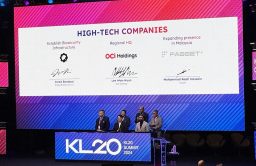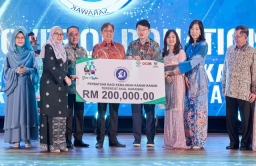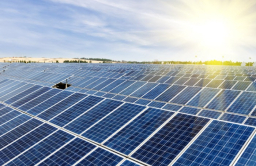-
KOSPI 2577.27 -2.21 -0.09%
-
KOSDAQ 722.52 -7.07 -0.97%
-
KOSPI200 341.49 +0.02 +0.01%
-
USD/KRW 1396 -2.00 0.14%
Malaysia, OCI’s base set to beat Chinese polysilicon rivals
Energy
Malaysia, OCI’s base set to beat Chinese polysilicon rivals
OCIM, the South Korean group’s Malaysia polysilicon unit, is set to enjoy further corporate tax exemptions due to new investment
By
Apr 29, 2024 (Gmt+09:00)
3
Min read
News+
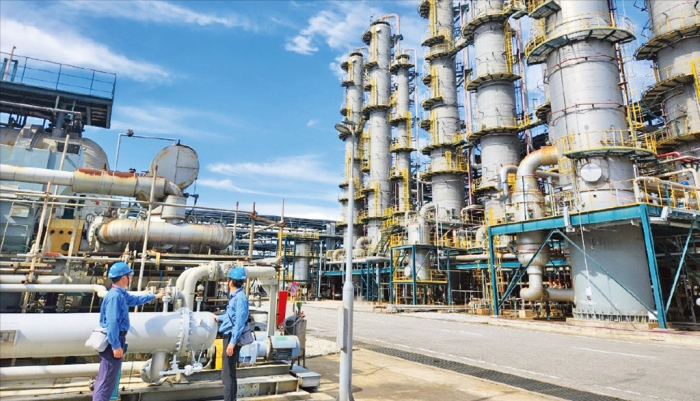
SARAWAK, Malaysia – OCI Group, South Korea’s leading chemical and green energy conglomerate, is expanding its polysilicon facility in Malaysia to beat its Chinese rivals, taking advantage of low utility bills, labor costs and taxes in the Southeast Asian country.
OCIM Sdn. Bhd., the wholly owned Malaysian subsidiary of OCI Holdings Co., is raising capacity at its manufacturing capacity of the polysilicon for solar panels at the Samalaju Industrial Park in the energy-rich Malaysian state of Sarawak while building an epichlorohydrin plant with South Korea’s Kumho P&B Chemicals Inc. Construction equipment such as dump trucks and excavators were busy moving around the site on April 25 when South Korean reporters visited.
OCI decided to invest 850 billion won ($615.1 million) by 2027 to raise OCIM’s capacity of solar-grade polysilicon to 56,000 tons a year from the current 35,000 tons.
“We plan to expand business portfolios including the establishment of a factory of semiconductor-grade polysilicon,” OCI Holdings Chairman Lee Woo-hyun told reporters.
OCIM was the first company to start the business in the 8,000-hectare industrial complex, about 60 kilometers (37.3 miles) northeast of Bintulu, Sarawak on the island of Borneo, about a two-hour flight from Kuala Lumpur.
TAKEOVER FROM TOKUYAMA
OCI acquired a 100% stake in Japanese chemical giant Tokuyama Corp.’s Malaysian polysilicon production unit in the industrial park at 217.4 billion won ($157.3 million) in 2017 to create OCIM.
Tokuyama suffered annual losses of more than 100 billion won every year since it opened in 2013 the factory, in which the company invested 2 trillion won. The plant’s utilization rate was slightly higher than 50% with equipment often suspended.
OCI took over the facility as it was hard to invest more in its factory in South Korea due to higher utility and labor costs. The group dispatched about 120 staff from the headquarters to the Southeast Asian country to revamp the Sarawak plant, which boosted its run rates.
The facility, which had manufactured only 11,000 tons a year when OCI acquired, tripled the output to 35,000 tons in six to seven years after the takeover with operation rates rising to nearly 100%.
OCIM reported operation profits of 536.3 billion won in 2022 and 403.5 billion won last year, respectively.
Its success has prompted major companies to set up business in the Samalaju Industrial Park, Lee said.
“Other global companies are following in OCIM’s footsteps as it established a site here and succeeded,” he said.
China’s LONGi Green Energy Technology Co., the global leading solar module manufacturer, almost completed a plant on a land of 505,000 square meters, while China’s Wenan Steel is conducting excavation work to build a blast furnace.
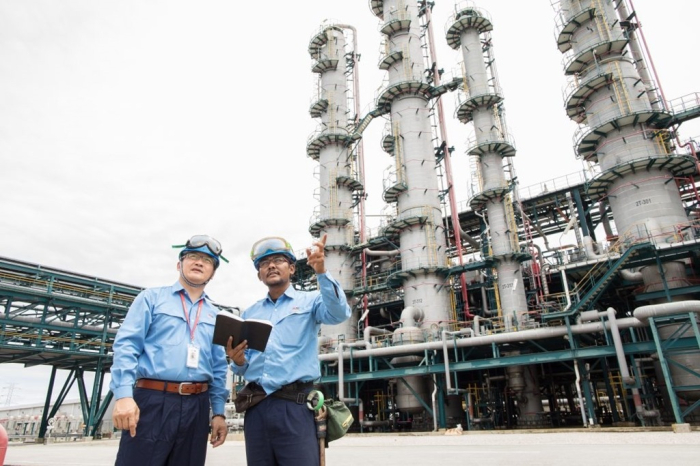
LOWER UTILITY BILLS, LABOR COSTS, TAXES
Malaysia offers various benefits to attract foreign companies’ investments there.
Electricity costs 5.2 cents per kilowatt, only a third of those in South Korea.
“Companies in petrochemicals, steel and solar sectors, which consume much electricity, are coming here mostly,” said Kim Dong Moon, OCIM plant manager and chief technology officer. “We can maintain price competitiveness thanks to the low utility bills.”
Low corporate taxes are attractive. The Sarawak state government has decided to exempt corporate taxes up to 2 trillion won for 10 years, which Tokuyama spent, allowing the company not to pay corporate taxes if the Malaysian unit’s operating profit during the decade is less than 2 trillion won.
OCIM is set to enjoy further exemptions thanks to the additional investment.
Labor costs are much lower than those in South Korea with an average monthly salary of 1.5 million won.
Lee said OCIM has also been a major beneficiary of US sanctions on Chinese polysilicon. Washington effectively banned the imports of solar modules made of raised silicon material from China under the Uyghur Forced Labor Prevention Act (UFLPA) in July of last year.
Write to Woo-Sub Kim at duter@hankyung.com
Jongwoo Cheon edited this article.
More To Read
-
Apr 23, 2024 (Gmt+09:00)
-
Jan 25, 2024 (Gmt+09:00)
-
Sep 25, 2023 (Gmt+09:00)
-
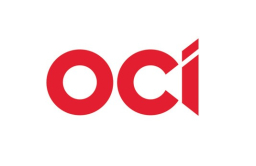 Chemical IndustryOCI to jointly produce polysilicon for chips with Japanese company
Chemical IndustryOCI to jointly produce polysilicon for chips with Japanese companyMay 24, 2023 (Gmt+09:00)


